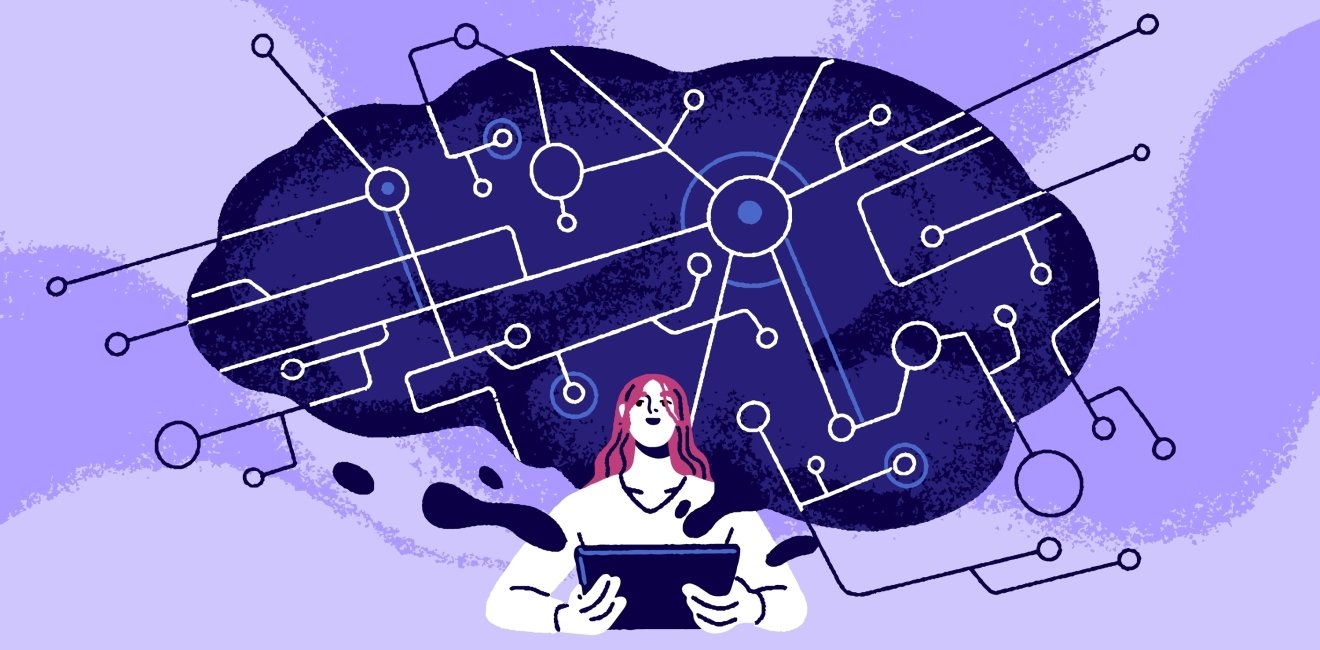Harnessing the Power of Technology for a More Equitable Future
For International Youth Day, “From Clicks To Progress: Youth Digital Pathways For Sustainable Development,” MEP highlights contributions on TF-GBV and AI in MENA.

A blog of the Middle East Women's Initiative
For International Youth Day, “From Clicks To Progress: Youth Digital Pathways For Sustainable Development,” MEP highlights contributions on TF-GBV and AI in MENA.

Today marks International Youth Day, a day highlighting young people’s voices, as well as actions and initiatives that empower their meaningful participation in society. This year’s focus is “From Clicks To Progress: Youth Digital Pathways For Sustainable Development,” a celebration of digital innovation to solve the world’s most pressing challenges and to advance the UN Sustainable Development Goals.
MEP’s Enheduanna is spotlighting the opportunities for technology to support gender equality and empower women in the Middle East & North Africa—and its limitations—with contributions from Global Fellow Sola Mahfouz, entrepreneur Maryam Hassani, and scholar Bassant Hassib.
It is well-established that technology, old and new, has the potential to empower women. Throughout history, technological advancements as mundane sounding as the dishwasher have generated opportunities for women by reducing time spent on unpaid care work, for instance, and facilitating their full participation in all of society. With newfound free time and reduced barriers to access knowledge, economic markets, and public life, technology can open pathways to women’s empowerment.
Information and communication technology (ICTs), like cellphones, have long been used to increase women’s access to knowledge, services, and opportunities that might otherwise be unavailable to them. For instance, women in Lebanon are finding remote jobs as web developers after completing ICT training online. In Jordan, community organizers in the the Za’atari refugee camp shared essential health public service announcements through WhatsApp.
While MENA has the lowest representation of women in technology (women's participation in ICT remains below 50% across 16 countries in the region), trends are improving overall. Cutting-edge technology like AI has the power to further reduce barriers to entering the workforce.
Maryam Hassani explains how AI can help female entrepreneurs “develop their concepts, reduce costs, and increase efficiency.” What used to take a team of software engineers can now be done by using generative AI tools like Codestral or her own Zealous TenX. In a region where only 19% of women participate in the workforce, the potential applications of AI to not only to facilitating individual women’s entrepreneurial ventures but also to scaling workforce development initiatives are ripe.
Technology can also play a powerful role in advancing progressive gender norms. In addition to its critical role in economic empowerment, technology can also facilitate women’s access to information, potentially paving the way for greater political and civic participation. It can help women find community, thereby acting as a modality for consciousness-raising and confidence-building. Repeated interactions with technology can slowly shift the benchmark of what is considered acceptable and create the conditions for women to challenge traditional gendered roles.
While the digital gender divide in MENA is improving (from 14% in 2019 to 10% in 2023), gender norms, as well as access to and the structures of technology itself, may certainly limit access and its usage.
MEP Global Fellow Sola Mahfouz reflects on the gender and racial biases in AI data and its potential pitfalls. “As an Afghan, I can already see how much data about Afghans is lacking in the English language. When that is the data, where is the accurate representation? How does a lack of representative data become exacerbated by AI?” she asks.
Another significant barrier to women’s and girls’ full access to digital spaces is technology-facilitated gender-based violence (TF-GBV). Bassant Hassib outlines the real harm that main forms of TF-GBV in MENA—cyber catphishing or sting operations, cyber (s)extortion, and revenge pornography—cause to women, girls, and LGBTQ+ individuals. In a 2022 survey, UN Women found that nearly half of women Internet users felt unsafe from online harassment. This hostile digital environment leads to a gendered “chilling effect,” where women censor or remove themselves from online spaces to avoid violence, impeding their full participation in the increasingly digitalized civic, political, and economic spheres.
TF-GBV can also be perpetuated by state actors, as Rachel George has shown investigating how the Iranian government used AI tools to enhance their surveillance of Women, Life, Freedom protestors. The use of AI by a state actor to commit gender repression is a worrying development and prompts questions about regulation and dual-use technology.
In a world where technology is an integral part of governance, business, and social lives, facilitating women’s full access to use of technology is imperative. As technology is rapidly innovating, so too are new ways to both empower and repress women and other gendered minorities. Responsible stewardship, meaning accountability and inclusivity, of these technologies is not only a moral imperative, as it is a right for all people to live violence-free lives, but also key to unlocking technology’s multifaceted power to bring a brighter, more gender-equal future to all.
The author kindly thanks Seda Gunes for contributing to the research for this article.
The views represented in this piece are those of the author and do not express the official position of the Wilson Center.


The Wilson Center’s Middle East Program serves as a crucial resource for the policymaking community and beyond, providing analyses and research that helps inform US foreign policymaking, stimulates public debate, and expands knowledge about issues in the wider Middle East and North Africa (MENA) region. Read more


The Middle East Women's Initiative (MEWI) promotes the empowerment of women in the region through an open and inclusive dialogue with women leaders from the Middle East and continuous research. Read more



